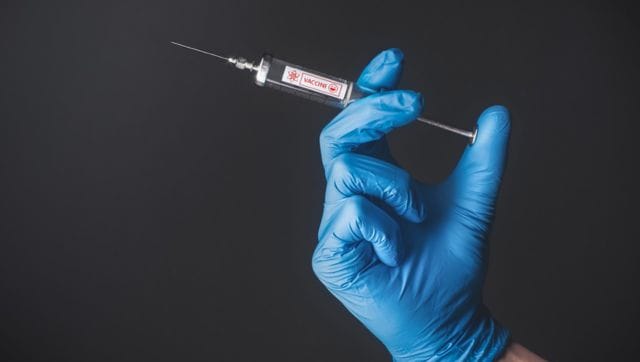Researchers in China have developed a nanovaccine to prevent the buildup of plaque in arteries – atherosclerosis – that can result in blood clots, stroke and heart attacks. The vaccine was injected into mice that were fed a high-cholesterol diet. Here’s what the scientists foundread moreChinese scientists have developed a vaccine to prevent the buildup of plaque in the arteries that can lead to stroke, blood clots and heart attacks. The test of this “cocktail” nanovaccine was conducted on mice.The nanovaccine was developed by a team of researchers from the Nanjing University of Science and Technology and the University of Science and Technology of China. The new study published in the journal Nature Communications could prove to be a breakthrough in preventing heart diseases.AdvertisementLet’s take a closer look.How the vaccine was developedScientists in China developed a nanovaccine to target atherosclerosis, a common disease that develops when plaque – a deposit of fats, cholesterol and other substances – builds up in your arteries.Its risk factors include high cholesterol, high blood pressure, smoking, obesity, type 1 diabetes, a diet high in saturated fat and an unhealthy diet.As per a South China Morning Post (SCMP) report, the team of researchers connected an antigen that sets off an immune response against atherosclerosis or an immune response booster onto tiny iron oxide nanoparticles.Previous studies have helped form a digital library of various proteins that protect against inflammation and amplify the body’s immune response to atherosclerosis.China scientists have developed a vaccine to prevent atherosclerosis. Representational Image/PixabayOne such protein that arrests the progression of atherosclerosis is the p210 antigen. The new vaccine uses this protein, attaching the p210 antigen onto tiny iron oxide nanoparticles and links an immune adjuvant to different nanoparticles.An adjuvant is a substance used to boost the immune response of a vaccine.What did the study find?The nanovaccine was injected into mice that were fed a high-cholesterol diet.The study found that the “cocktail” nanovaccine reduces plaque progression and development of atherosclerosis in mice.“Our nanovaccine design and preclinical data present a potential candidate for prophylactic treatment for atherosclerosis,” scientists at Nanjing University of Science and Technology in China wrote.AdvertisementThe researchers discovered that the cocktail design of the vaccine worked better in mice than attaching the antigen and adjuvant to the same nanoparticles.“In studying the vaccinations against atherosclerosis, an ongoing challenge is deciphering the mechanism of action – a prerequisite for translation of a vaccination protocol to humans,” the team said.The vaccine worked by aiding the body’s immune cells to take up the antigen and adjuvant, which then activated the star-shaped dendritic cells — immune cells that enhance response by showing antigens on their surface to other cells of the immune system.This led to stimulated T cells, sparking the production of antibodies against p210.T cells are the white blood cells key for immune functions to maintain health and prevent disease.Advertisement“Our findings demonstrate that the two-pronged nanovaccine delivery strategy is effective against atherosclerosis,” researchers wrote, as per Independent.Why it mattersAtherosclerosis leads to the buildup of plaque or thickening due to inflammation. This reduces blood flow and oxygen supply to the vital body organs, increasing the risk of blood clots, stroke and heart attacks.A potential vaccine to prevent this could be a game-changer as heart disease is the world’s biggest killer. However, more research is needed before the vaccine is used in human trials.“How long the nanovaccines protect against atherosclerosis requires further investigation,” the team wrote. The Chinese scientists hope to carry out further studies to find this out.With inputs from agenciesMore from Health
Is China a step closer to making vaccine for stroke and heart attack?
India’s growing nightmare: Why 59 per cent of Indians get less than 6 hours of sleep
How ecstasy may have saved October 7 attack survivors from trauma
What is the rare genetic disorder that claimed Luxembourg prince’s life at 22?End of Article
Follow this link:
Is China a step closer to making vaccine for stroke and heart attack?
